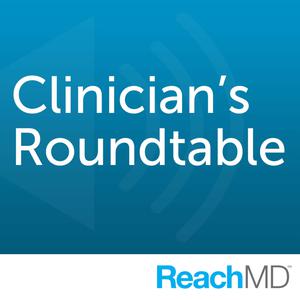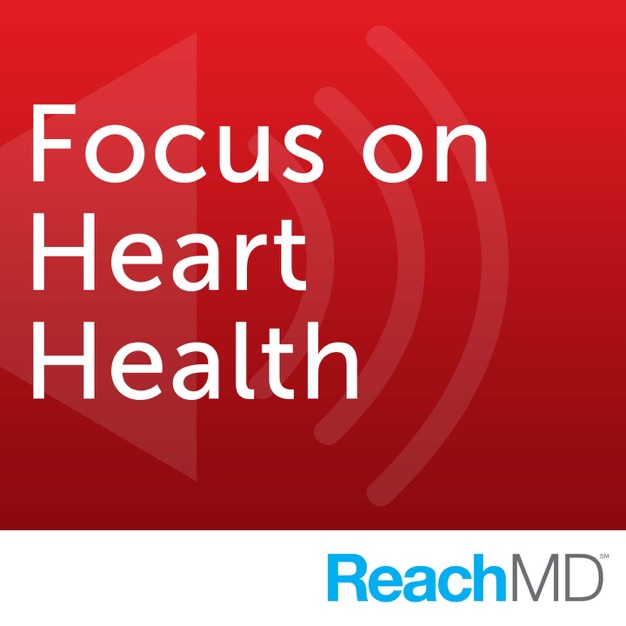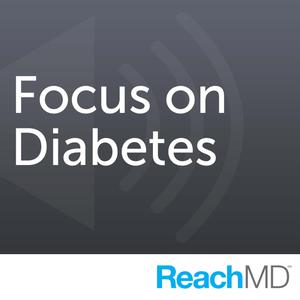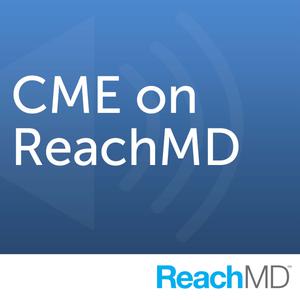
Clinician's Roundtable
ReachMD
- Future Directions in Dermatology: Breakthroughs from Maui Derm 2025Host: Raj Chovatiya, MD, PhD
Here to share a glimpse into where the dermatology field might be headed based on updates from the Maui Derm 2025 conference is Dr. Raj Chovatiya. Dr. Chovatiya is a Clinical Associate Professor at the Rosalind Franklin University Chicago Medical School and Founder and Director of the Center for Medical Dermatology and Immunology Research in Chicago.
20 January 2025, 5:00 am - Looking Back to Look Forward: Key Dermatology Updates in 2024Host: Raj Chovatiya, MD, PhD
In light of the Maui Derm 2025 conference, Dr. Raj Chovatiya is here to discuss the most significant updates in the dermatology field that helped define 2024. Dr. Chovatiya is a Clinical Associate Professor at the Rosalind Franklin University Chicago Medical School and Founder and Director of the Center for Medical Dermatology and Immunology Research in Chicago.
20 January 2025, 5:00 am - Maui Derm 2025: Key Themes and Topics to KnowHost: Raj Chovatiya, MD, PhD
Here to share his insights on the key themes and topics covered at the Maui Derm 2025 conference is Dr. Raj Chovatiya. Dr. Chovatiya is a Clinical Associate Professor at the Rosalind Franklin University Chicago Medical School and Founder and Director of the Center for Medical Dermatology and Immunology Research in Chicago.
20 January 2025, 5:00 am - Updates in Undifferentiated Eczema: Taking a Practical Approach to CareHost: Raj Chovatiya, MD, PhD
How should we approach caring for undifferentiated eczema patients who didn’t have eczema as a child, who doesn’t have atopic co-morbidities, and isn’t flexural? Here to give a quick overview of his session at the Maui Derm 2025 conference that sought to help answer this question is Dr. Raj Chovatiya. Dr. Chovatiya is a Clinical Associate Professor at the Rosalind Franklin University Chicago Medical School and Founder and Director of the Center for Medical Dermatology and Immunology Research in Chicago.
20 January 2025, 5:00 am - APOL1 and Chronic Kidney Disease: New Findings in African PopulationsGuest: Rasheed A. Gbadegesin, MD, MBBS
A new study by the H3 Africa Kidney Research Network found that APOL1 variants are a major risk factor for chronic kidney disease. Additionally, these variants are particularly prevalent among West Africans. Dr. Rasheed Gbadegesin dives into these findings and explains how they could contribute to preventive measures and improved outcomes in patients of African ancestry. Dr. Gbadegesin is the Director of the Office of Physician-Scientist Development at Duke University School of Medicine.
8 January 2025, 5:00 am - Atopic Dermatitis: Implementing the Latest Treatment Guidelines into PracticeHost: Raj Chovatiya, MD, PhD
Guest: Christopher Bunick, MD, PhD, FAAD
The American Academy of Dermatology recently updated the treatment guidelines for atopic dermatitis to include the latest systemic therapies, like biologics and JAK inhibitors. Since these new standards of care could offer improved outcomes for our patients with atopic dermatitis, Dr. Raj Chovatiya speaks with Dr. Christopher Bunick about what the new guidelines recommend and how we can incorporate them into clinical practice. Dr. Bunick is an Associate Professor of Dermatology at the Yale School of Medicine.
8 January 2025, 5:00 am - Navigating the New Atopic Dermatitis Guidelines: Advanced Treatment ApproachesHost: Jennifer Caudle, DO
Guest: Steven R. Feldman, MD, PhD
The American Academy of Dermatology recently updated their guidelines regarding the treatment of moderate-to-severe atopic dermatitis to expand the recommended use of systemic therapies like biologics and JAK inhibitors. To help ensure our approach is up to date, Dr. Jennifer Caudle speaks with Dr. Steven Feldman about the new guidelines and how we can implement them into clinical practice. Dr. Feldman is a Professor of Dermatology, Pathology, Social Sciences and Health Policy at the Wake Forest University School of Medicine in Winston-Salem, North Carolina.
8 January 2025, 5:00 am - IgAN Explained: Key Differences from Other Kidney ConditionsGuest: Mohamed Ibrahim, MB, BCh
IgA nephropathy (IgAN) is a rare autoimmune kidney disease in which IgA deposits damage kidney filters, causing symptoms like proteinuria and swelling. While symptoms can overlap with other kidney diseases, IgAN presents challenges of its own. Learn about the unique characteristics of IgAN with Dr. Mohamed Ibrahim, an Assistant Professor of Transplant Nephrology at the University of Maryland School of Medicine.
6 December 2024, 5:00 am - Nutritional Strategies for Managing IgA NephropathyGuest: Jennifer Moore, MS, RDN, CSR, LDN
Host: Charles Turck, PharmD, BCPS, BCCCP
IgA nephropathy, or IgAN, is a rare kidney disease that requires dietary changes to maintain kidney health and function while supporting other organ systems. Learn about the most crucial dietary considerations for these patients from Jennifer Moore, a renal nutrition expert.
19 November 2024, 5:00 am - Intraoperative Opioid Waste: Critical Impacts and Prevention StrategiesHost: Charles Turck, PharmD, BCPS, BCCCP
Guest: John Hertig PharmD, MS, CPPS
Not only does intraoperative opioid waste have serious environmental, regulatory, and financial costs, but it can also threaten the quality of patient care and safety. Fortunately, implementing strategies like ready-to-administer syringes with small doses can improve surgical protocols, patient outcomes, and overall healthcare efficiency. Joining Dr. Charles Turck to discuss how we can address and prevent the critical impacts of opioid waste is Dr. John Hertig, Associate Professor of Pharmacy Practice and Department Chair at Butler University College of Pharmacy and Health Sciences.
11 November 2024, 5:00 am - Rare Kidney Disease: A Parent and Caregiver’s PerspectiveHost: Gates B. Colbert, MD
Guest: Kelly Helm
Over 35 million people in the United States suffer from some form of chronic kidney disease, but many of them lack the support and education to navigate their condition and receive the best possible care. After her daughter was diagnosed with a rare kidney disease, Kelly Helm discovered the many obstacles associated with management and treatment. Hear from Kelly as she sits down with Dr. Gates Colbert to share what she’s learned as a parent, caregiver, and advocate. Kelly is the Executive Director of Patient Engagement at NephCure, a nonprofit organization dedicated to supporting and empowering patients with rare kidney diseases.
1 November 2024, 4:00 am - More Episodes? Get the App
Your feedback is valuable to us. Should you encounter any bugs, glitches, lack of functionality or other problems, please email us on [email protected] or join Moon.FM Telegram Group where you can talk directly to the dev team who are happy to answer any queries.
 Diabetes Discourse
Diabetes Discourse
 Focus on Women's and Men’s Health
Focus on Women's and Men’s Health
 Focus on Heart Health
Focus on Heart Health
 Advances in Women's Health
Advances in Women's Health
 Focus on Diabetes
Focus on Diabetes
 ReachMD CME
ReachMD CME